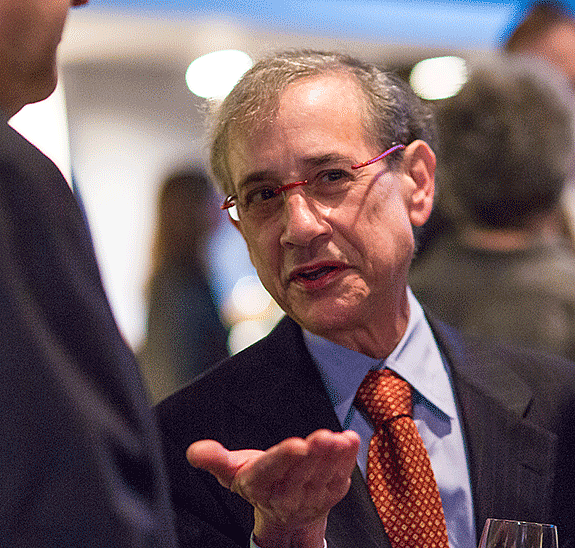The IAS Questionnaire: Carl P. Feinberg

Carl P. Feinberg recently endowed a Professorship in the School of Natural Sciences in which Juan Maldacena becomes the first Carl P. Feinberg Professor in the School. Feinberg is founder and Chief Executive Officer of the software products firm Relational Architects Intl. He has been a Friend of the Institute since 2002, with his wife Toby. “We are extremely grateful,” said Robbert Dijkgraaf, Director and Leon Levy Professor, “for Carl’s extraordinary gift to the Institute.”
What makes you curious? Everything. I want to understand what I perceive.
Whom do you most admire and why? Newton and Beethoven: Newton as an immortal theorist, experimentalist, and mathematician whose achievements in those fields represent just a fraction of his total output and activity. I revere Beethoven because I continue to thrill to his music and marvel at its construction. His was not the effortless perfection of Mozart, but Beethoven’s finished works give me pleasure bordering on rapture, accompanied by a sense of exaltation.
Outside of your own, which field interests you most? Science in general and theoretical physics in particular.
What is the most surprising thing you’ve learned? It surprises and exasperates me that governments so seldom undertake projects whose benefits should make them slam-dunk no-brainers. Investments in infrastructure and R&D are current cases in point.
How do you free your thinking? I walk.
What question would you most like answered? How to consistently and reliably ask the right question.
Hermann Weyl, who served on the Institute Faculty from 1933 until his death in 1955, once said, “My work always tried to unite the truth with the beautiful, but when I had to choose one or the other, I usually chose the beautiful.” If you had to choose between truth or beauty, which would you choose and why? Truth and beauty are so often coincident one could make a case that although distinguishable, they are inseparable. But if forced to choose, I would go with truth because it inevitably prevails.
What is the purpose of knowledge? For those who create knowledge, it’s often to satisfy their own curiosity and derive gratification from having done so. The sentient beings and civilizations that utilize knowledge seek to achieve purposes of their own. Regrettably, those purposes aren’t always good.
How do you play? Travel remains an inexhaustible adventure. I love to dance, go to the movies, and listen to music as well.
Which three words best describe the Institute? Unique, unconstrained, and invaluable.